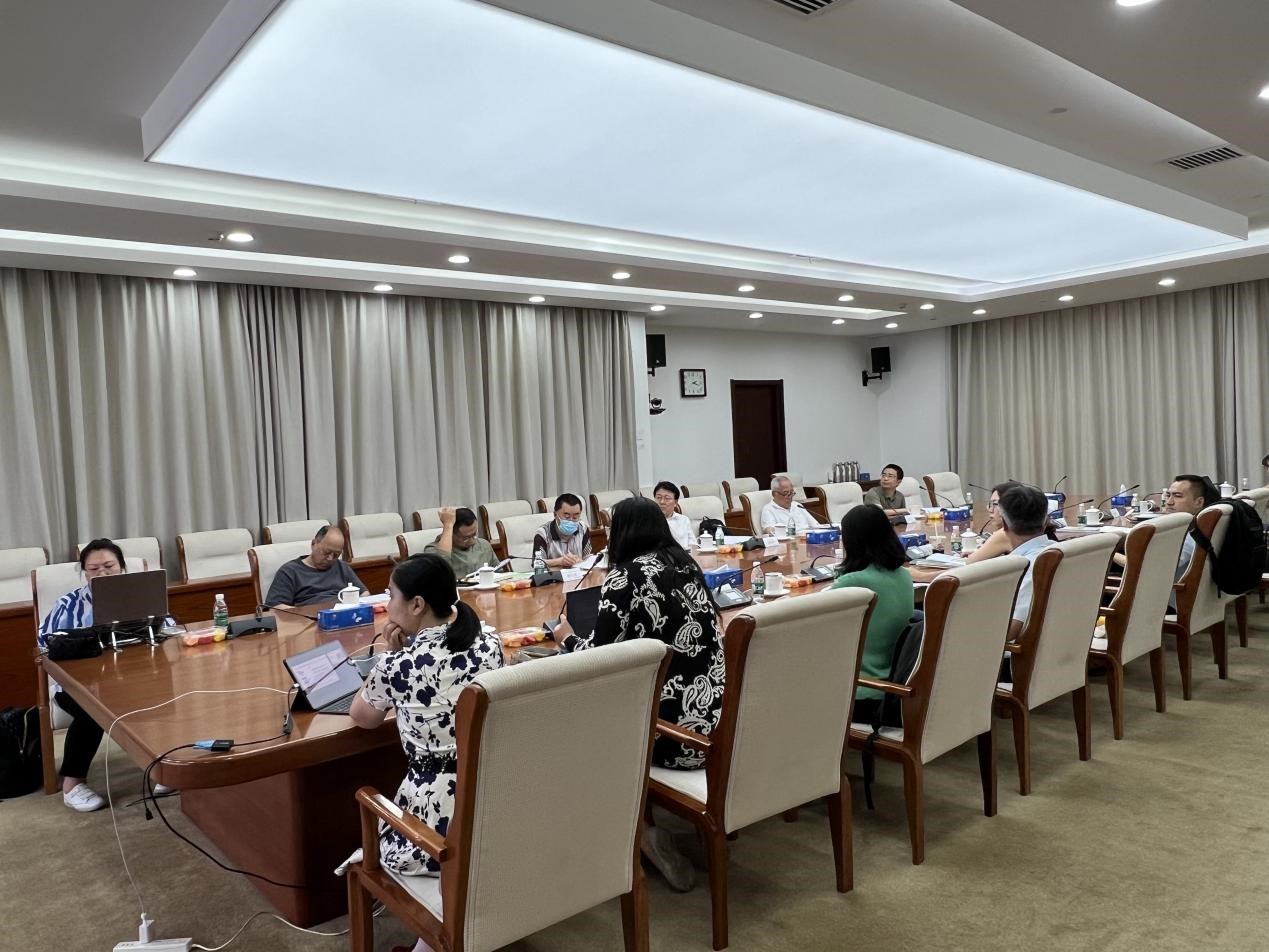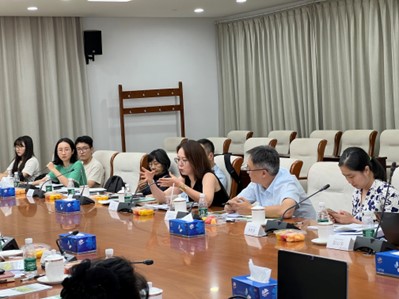On July 18, 2024, the 2024 PAC meeting of the Sustainable Food Production in China project was held successfully at the Institute of Agricultural Economics of the Chinese Academy of Agricultural Sciences. Gao Si, Chief Representative of the Swedish Environmental Research Institute in China, chaired the meeting. Members of the project team, officers from the EU Delegation to China, and experts in the fields of agriculture, environmental protection, and distribution convened to discuss the project's progress and future direction.

Mr. Wang Wenhua, Deputy Secretary General of the China Chain Store and Franchise Association, then delivered a speech. On behalf of the project team, he expressed his sincerest gratitude to the experts for their participation and guidance, and highlighted the challenges and achievements of the project in the process of promotion. Next, Ms. Feng Mei, representative of the EU Delegation to China, expressed her support for the project's progress and highlighted the significance of the quantitative indicators in the report, particularly the challenges and solutions encountered during the project's implementation. Ms. Feng Mei stated that she hoped the project outputs would be promoted not only within China but also shared within the Asia-Pacific region to achieve a wider impact.

The project team then presented an update on the project's progress in the second year. Guo Qinhua of the China Chain Store and Franchise Association outlined the training provided to farmers' cooperatives and farmers nationwide in the second year, along with the outcomes of the promotion of standardized logistics containers. This year's efforts have resulted in two key outcomes. Firstly, the project has raised farmers' awareness of sustainable development. Secondly, it has optimized the management of stakeholders in the fresh produce supply chain through the promotion of standardized fruit and vegetable reusable plastic crates.
Zhou Hui of the Chinese Academy of Agricultural Sciences provided further details on the training outcomes. She stated that the project initially identified the needs of cooperatives through research and integrated the principles of sustainable development and agricultural planting technology into the training curriculum to ensure that the content was more practical and readily accepted by farmers.
Zhu Yanjing from the Swedish Academy of Environmental Sciences provided a comprehensive update on the reusable plastic crates pilot project, including the LCA and LCC research results for reusable plastic crates for fruits and vegetables.
During the meeting, the experts also provided feedback and recommendations on the project.
Professor Wang Zhigang, School of Agriculture and Rural Development, Renmin University of China: The project should prioritize enhancing the efficiency of the agricultural product distribution chain. He proposed leveraging big data and intelligent technologies to optimize supply chain management, thereby enhancing the efficiency, quality, and competitiveness of agricultural products in the market. From a company perspective, Mr. Yuan Feng, General Manager of Shenzhen Pagoda Industrial (Group) Corporation Limited, provided an update on the implementation of reusable plastic crates for fruits and vegetables. By utilizing reusable plastic crates, Pagoda has achieved a significant reduction in logistics costs, amounting to approximately 50 million RMB annually. Additionally, the company has successfully eliminated the need for 20 million disposable cardboard boxes each year.
CHEN Tianjin, Director of the National Cooperation Division of the International Cooperation Bureau of the Chinese Academy of Agricultural Sciences, stated that the project is more than halfway through and requires a comprehensive review and evaluation. Based on the current progress, a set of replicable and transferable technical models suitable for application scenarios in China should be developed to further expand and deepen the impact of the project.
Professor CHEN Liping of the Capital University of Economics and Business recommended that the project team conduct further research on key links in China's sustainable circulation, align the characteristics of China's agricultural product circulation, and collaborate with circulation enterprises to promote the transformation and application of scientific research results.
Dong Zhanfeng, Deputy Director of the Chinese Academy for Environmental Planning, Ministry of Ecology and Environment, highlighted specific project issues, including the use of reusable plastic crates and low-carbon operations for fresh produce. He also emphasized the importance of technical routes and methods, as well as the application of research results and the formulation of policy recommendations.
Jin Maojun, a researcher at the Institute of Agricultural Quality Standards and Testing Technology of the Chinese Academy of Agricultural Sciences, discussed the new requirements and management methods of the "Agricultural Products Quality and Safety Law" that took effect on January 1, 2023. He then put forward a number of proposed amendments to the 'Operational Guidelines for the Acceptance of Incoming Edible Agricultural Products', produced by the project, from the perspective of a technical expert.
The event concluded with a speech by Liu Xianwu, Vice President of the Chinese Academy of Agricultural Sciences. He commended the project team for its comprehensive analysis of agricultural production, circulation, and consumption from multiple perspectives. He also underscored the significance of data accuracy, regional differences, and the impact of consumption patterns on production and logistics models. He also recommended that the project team prioritize system construction and characteristic point research in the remaining time, investigate low-carbon development models, maintain rigorous standards for data and framework design, and emphasize the significance of reducing losses in terms of China's food security and strategy.
The meeting provided valuable suggestions and guidance for the SAFE project, outlining the direction for future work. The project team will carefully consider and implement these suggestions, aiming to achieve enhanced results in the next year and a half of project work.


IVL


CCFA

